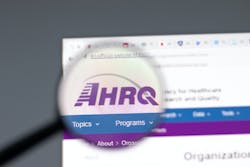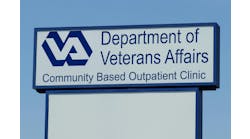The Agency for Healthcare Research and Quality (AHRQ) and the Patient Centered Outcomes Research Institute (PCORI) are partnering to advance learning health system scientist training with an investment of up to $80 million over five years to fund 16 centers nationwide.
A learning health system is described as creating a virtuous cycle where data collected in routine care is studied for variations and best practices, and that knowledge feeds changes to the system to create better performance. The concept has been gaining momentum for several years, but since 2020, the pandemic has really given the movement a boost, and more health systems are establishing infrastructure and training programs around it.
Through this joint initiative, AHRQ and PCORI said they are following through on their mutual commitments to support learning health systems by training a new cadre of learning health system scientists. Awardees will create new models of learning health system infrastructure that will use evidence generated by these scientists' research to optimize care as quickly, broadly, and equitably as possible.
The Learning Health System Embedded Scientist Training and Research (LHS E-StaR) Centers funded through this initiative will make efforts to recruit scientists who are representative of the diverse backgrounds and cultures of the communities they serve. The initiative will provide training and professional development for scientists in various care settings, engage communities and other health system stakeholders in novel ways, and promote research to improve health outcomes at the individual and population levels while enhancing health system operations.
One example is the MN-LHS LEaRN Initiative (Learning Health System Embedded Scientist Training and Research (LHS E-STaR) of the North) based at the University of Minnesota, which has five key aims:
• Leverage and expand existing LHS infrastructure to nurture a new generation of embedded scholars.
• Enhance diversity in LHS scientists, their science, and mentorship.
• Create a novel LHS infrastructure supporting patient-centered outcomes and comparative effectiveness research in healthcare systems.
• Establish learning communities and networks for knowledge exchange.
• Implement a rigorous system for program evaluation and improvement.
“By collaborating with additional Minnesota partners across diverse settings and building upon its successful K12 career development program, we expect that the expanded MN-LHS training program will have increased impact across the state and beyond,” said Melinda Pettigrew, Ph.D., dean of the School of Public Health, in a statement. “Not only will MN-LHS provide learning health science opportunities to early scientists and faculty but it will also provide opportunities to trainees within traditional postdoctoral and predoctoral training programs, as part of dedicated research efforts, or as shorter and more focused internships.”
Here are the 16 centers awarded grants in the program:
• PEDSnet Scholars: A National LHS Embedded Scientist Training and Research Program
• Michigan Embedded LHS Scientist Training and Research (MEL-STaR) Center
• Boston Health Equity and Community-Aligned LHS (Boston-HEALHS)
• Patient-Oriented Research and Training to Accelerate Learning (Penn PORTAL)
• Washington Learning Health System Embedded Scientist Training and Research Center (WALHS-E-STAR Center)
• Massachusetts Institute for Equity-Focused Learning Health System Science (MIELHSS)
• Southwest Safety Net Embedded Scientist Training and Research (SSNE-STaR) Center
• Realizing Accelerated Progress, Investigation, Implementation, and Dissemination in Learning Health System (RAPID-LHS) Center at Vanderbilt University Medical Center
• Columbia-Cornell-Einstein EQUIP+ Center for Learning Health System Science
• Dartmouth Learning Health System Embedded Scientist Training and Research (E-STaR) Center
• UCSF Learning Health System Embedded Scientist Training and Research Center
• Promoting Embedded Research in a Learning Health System
• Learning Health System Embedded Scientist Training and Research (LHS-E-STaR) of the North (LEaRN) at the University of Minnestoa
• Learning Health System Training to Improve Disability and Chronic Condition Care (LeaHD) at Brown University
• University of California San Diego Center for Learning Health System Science
• Learning Health System Scientist Training and Research in New Jersey (LHS STAR NJ)


